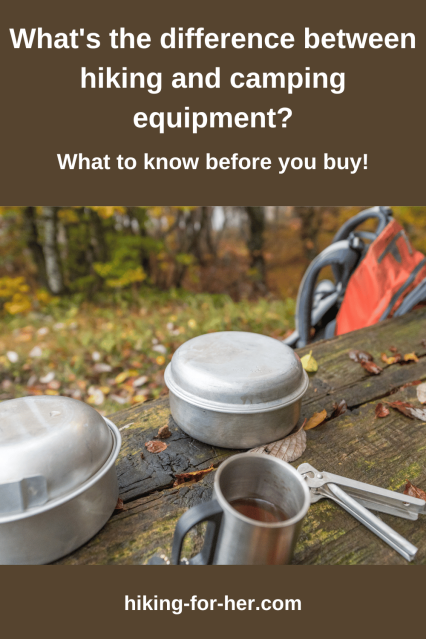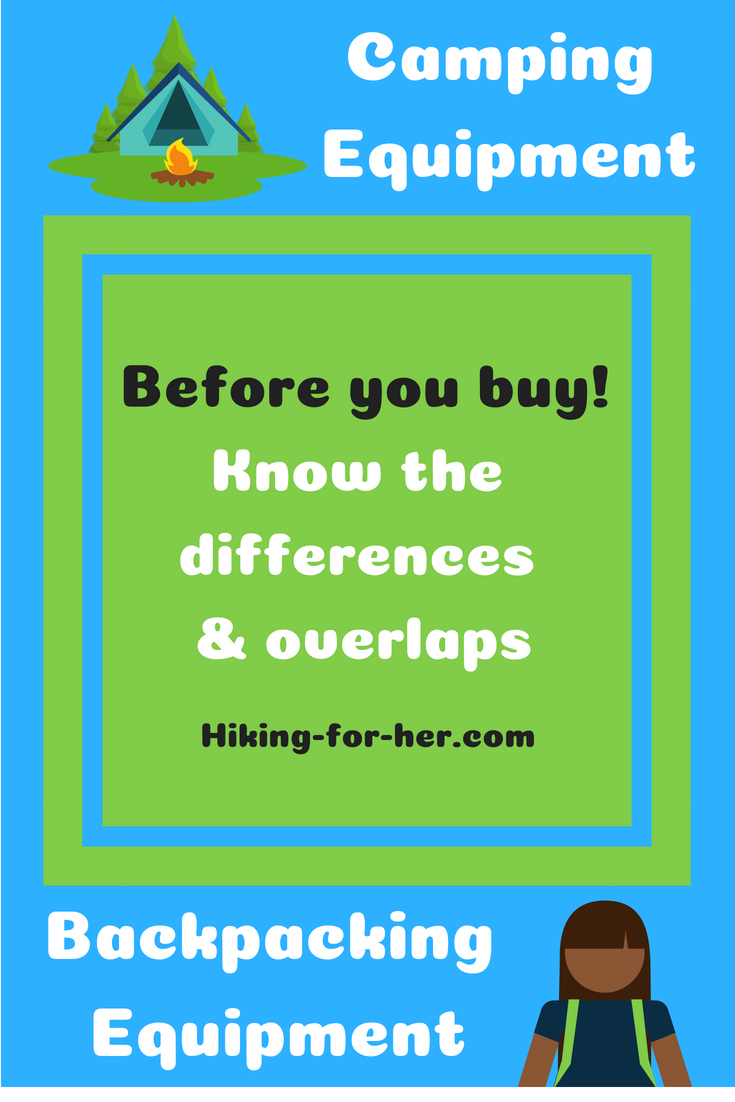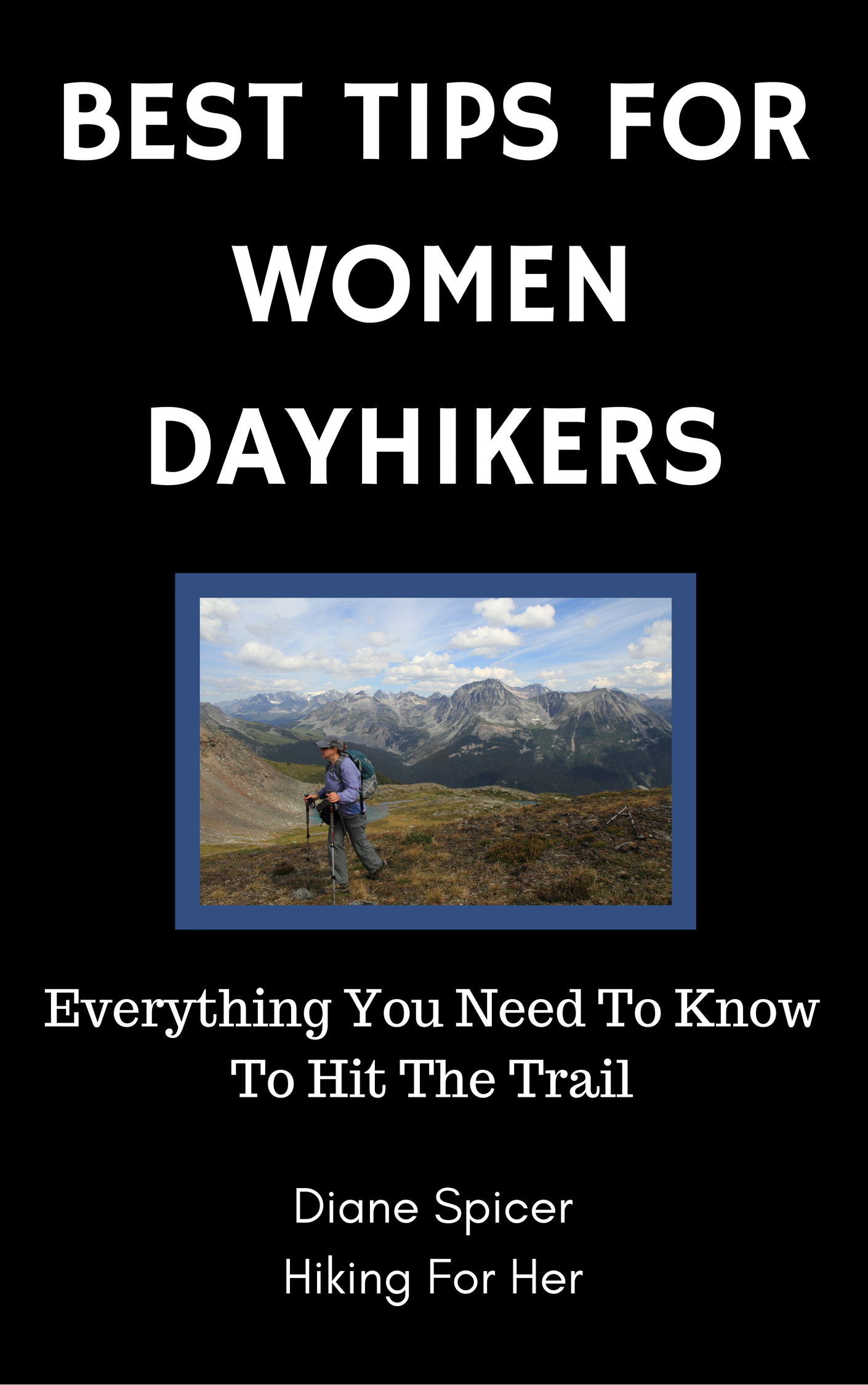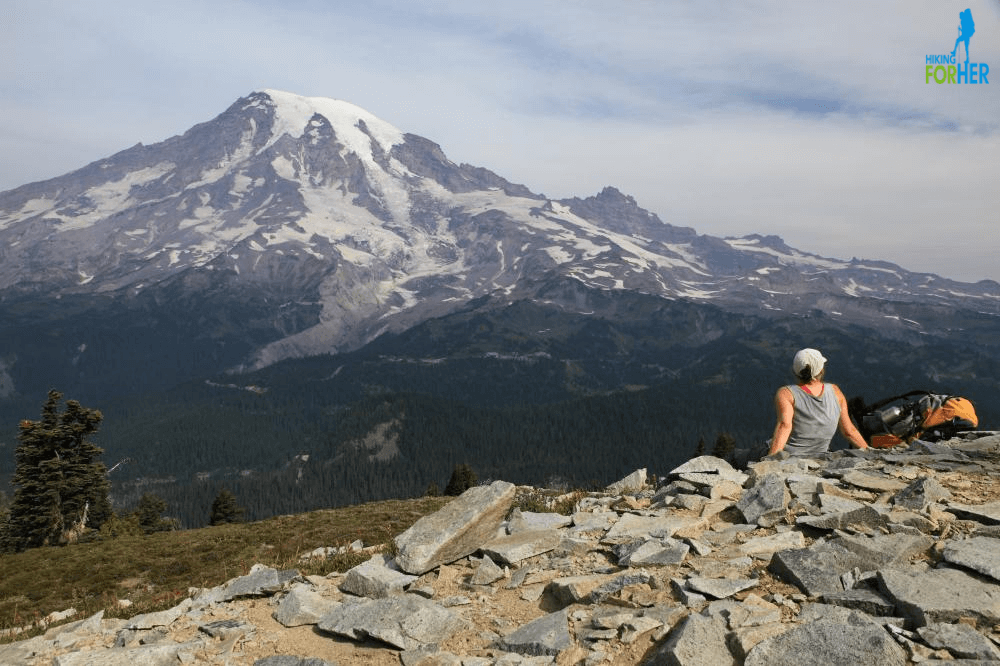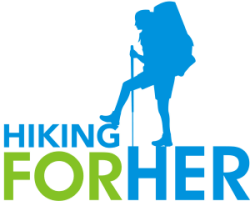
Hiking Camping Equipment:
Is There Any Difference?
By Diane Spicer
"Hiking camping equipment" is a phrase that smooshs together two separate universes.
If only astrophysicists could do the same!
- Equipment used for hiking (usually called gear) is made for trail safety and comfort. This may include overnight supplies for shelter, cooking, and making camp along a hiking trail.
- Camping equipment, purchased by car campers, is made for overnight safety and comfort , too. But it may not used by backpackers, who fuss over weight and portability to the nth degree.
The hiking universe does overlap the car camping universe, however.
And that's why you need to read this before you buy hiking equipment or invest in camping gear.
You want gear that can pull double duty if you want to backpack AND camp at established campgrounds.
- Like backpacking camping gear
- And car camping hiking gear
Hiking camping equipment -
what's the difference?
In my long experience with outdoors companies, gear stores, backpacking and camping, the differences between hiking and camping equipment revolve around three factors:
- weight
- comfort
- functionality
Weight
Hikers want lightweight hiking gear, because they are transporting it on their backs.
Car campers don't have to check for exact ounces in a flashlight or sleeping bag.
- But a car camper will appreciate lightweight, well made backpacking gear when sleeping at a trailhead waiting for sunrise!
Comfort sliding scale
Campers
want comfort above all, and have plenty of room in the car for comfortable camping equipment. A cozy blanket for the tent, a heavy sleeping bag, extra clothing come to mind.
Hikers crave comfort, but most are realistic about the direct
relationship between weight and comfort. They have gear hacks to get the most out of the least amount of gear.
- For example, a sleeping bag liner might give enough comfort during warm dry months, allowing you to leave the bag behind.
- Ditto for leaving the tent rain fly behind in absolutely dry terrain.
Double duty versus just one
Hikers bring less gear on a backpacking trip, not because they're martyrs but because they understand how to make camping equipment do double or triple duty.
In fact, it's an art form! See these tips about bandannas for an example.
And backpackers don't have the luxury of multiple options which campers enjoy. Gravity (i.e. weight) is a stern mistress.
On the other hand, campers are folks who can get away with "only one use" camping equipment: an omelet pan or a lantern.
There is no motivation to make any one piece of gear perform multiple uses.
More differences between
campers and hikers
- Campers may stay in one spot for many days in a row, while backpackers generally pull up camp after just one night. Thus, hikers need camping equipment that is fast and easy to set up/tear down in all kinds of weather.
- Hikers want camping equipment to use as small a footprint in the backpack as possible. Campers are only constrained by the size of their vehicle!
- Campers anticipate eating well, really well, including cold bottled beverages and fresh eggs for breakfast. Hikers are ok with the idea of dehydrated food, carefully chosen hiking snacks, and sticking to high calorie meals.
- Hikers use lightweight stoves and only have one "burner" at a time, so meals must be planned carefully. Campers can use campfires for cooking, but generally rely upon heavier double burner stoves with more heat control options.
- Campers have spacious, heavier accommodations (tents with more than 1 room!) while hikers carry lightweight tarps or tents for shelter. [Note that I do not consider folks who sleep in trailers (recreational vehicles) as hard core campers. My apologies in advance for any hurt feelings.]
- Hikers can reach places campers can't, and their hiking/camping equipment is built around comfortable and safe trail time to achieve a hiking objective. Campers have a vehicle to access a road, in case a medical or weather emergency arises, and so have less planning to do for a camping trip.
- Campers can bail on bad weather. Backpackers have to have a solid sleeping system and worthy rain gear to get through a bad patch.
- Campers might not hike, but hikers staying out at least one night need to camp! So hikers need to have a larger outdoors skill set, along with some serious hiking camping equipment.
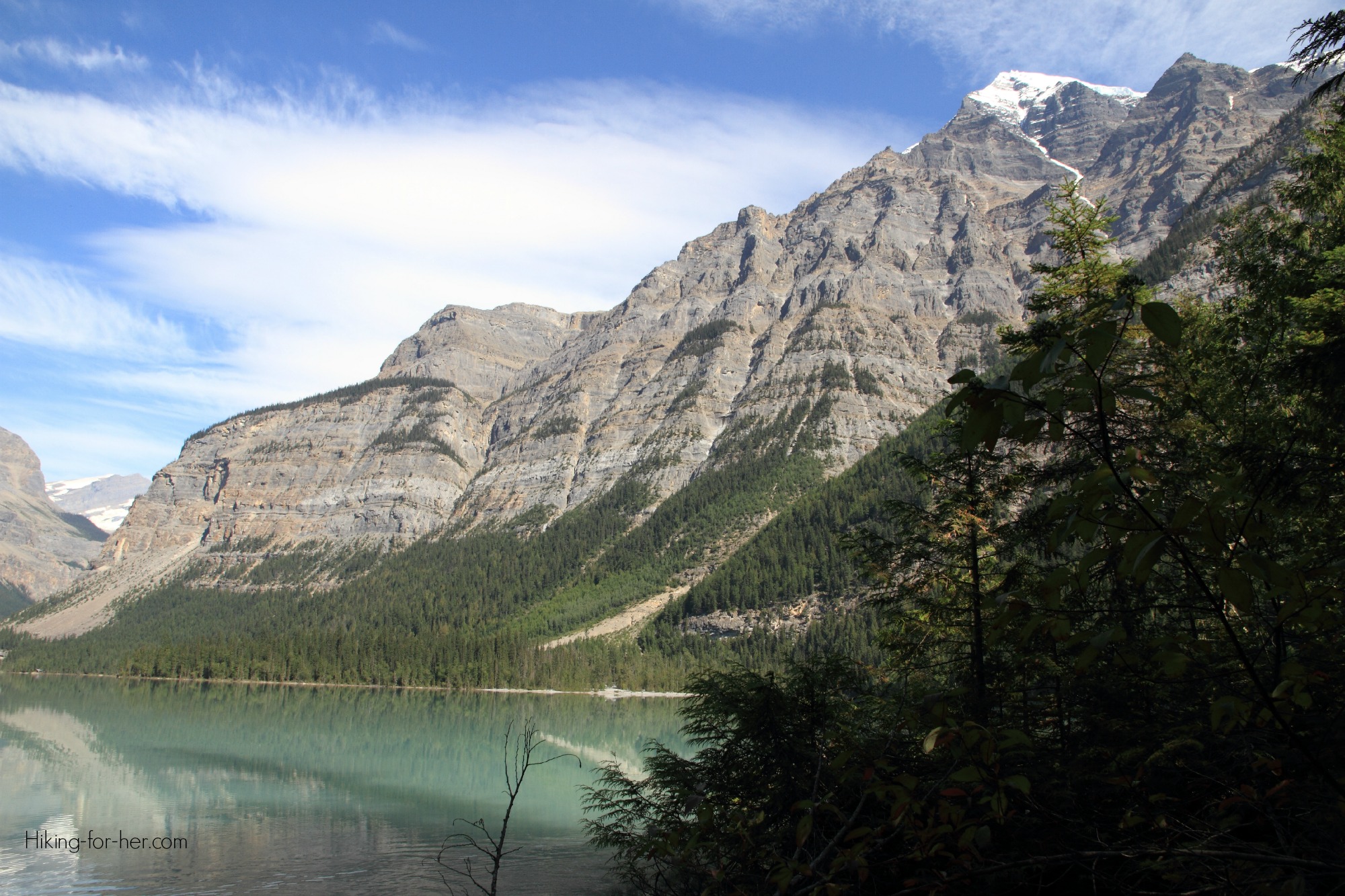 Only hikers can access Kinney Lake (Mt Robson Provincial Park, B.C.) but when they get there, they can camp!
Only hikers can access Kinney Lake (Mt Robson Provincial Park, B.C.) but when they get there, they can camp!
Hiking camping equipment -
what's the same?
What should be the same is the quality of the hiking camping equipment.
But in my experience, it isn't - unless you know which brands to choose.
It's possible to purchase inexpensive camping equipment and be disappointed when it's too heavy and/or too flimsy for hiking usage.
Backpack camping gear is a sub-set of camping equipment.
So don't be fooled!
A hiker needs to scrutinize camping equipment for these features:
- Durability. If it breaks when you're 25 miles from the trail head, that's trouble!
- Size. Is it going to hog space in your pack? Look for the smallest version of it that will do the job you want it to do, or collapsible gear you can expand when needed.
- Weight. Self-evident.
- Performance.
Stick with companies that have a long track record of making gear that
won't jam, clog, break or fall apart under heavy usage.
- Weather proof. A camper can eat and sleep in the car during a downpour or snow dump. A hiker still needs to make dinner and sleep outdoors, so gear that is waterproof is better than water repellent.
- Easy to use. If the stove needs a 5 page booklet to teach you how to light it, get something easier to use in "real" conditions.
And finally, we come to price
I'm a firm believer in bargain hunting for hiking camping equipment.
- If you want to use the same companies I use for hiking gear deals, go here.
But sometimes I am willing to pay a higher price for bombproof hiking gear, like my titanium cookware set.
Or my sleeping bag.
It's always a dance between price and quality, and if you're on the fence about which side to land on, always take the long view:
You're building a repertoire of reliable hiking camping equipment to be used for many years into the future.
And to be handed down to the next generation, in the case of a titanium cookware set that is handled with care, or a Coleman lantern treated with respect.
If you're interested, my hiking equipment list, honed by many decades of trial and error, is ready for your perusal right there.
Car camping for hikers:
have the best of both worlds
If you're just easing into the idea of backpacking, and you are up for the adventure of a camping trip, why not choose a campground that offers you easy access to several hiking trails?
You can day hike every day, but have some of the comforts of home in the evening:
- A cooler filled with food
- A roomy tent with plenty of room for gear
- A picnic table to make cooking easier
- A campfire (rules permitting) for roasting marshmallows
Use my tips for planning the best car camping for hikers experience!
Hiking camping equipment -
now it makes sense, right?
Have I convinced you that hikers camp, campers hike, and therefore all of them need hiking camping equipment?
But now you realize that camping hiking equipment doesn't have universal applicability.
When scanning ads or trolling through gear stores, as a hiker you want to head for the backpacking and hiking items, not the camping equipment.
The brands will be different.
Here's a good example:
- I use a two burner Coleman stove when I use my car as a base camp for serial day hikes at Mt. Rainier National Park.
- But I use my MSR WhisperLite stove when I backpack...
- ... and a JetBoil on short snowshoe dayhikes.
Note: They use different fuel canisters, and need to be set up and used differently. Maintenance and used fuel canisters are also a consideration.
Always handle your hiking camping equipment at home to avoid disasters.
More examples of gear comparisons
Read about backpack chairs -vs- camp chairs.
Or take a look at a portable, rechargeable, independent power station camping lantern that's way too heavy for backpacking.
Here's one more:
- a car camping sleeping pad compared to a backpacking pad.
But sometimes, outdoor gear can do
double duty!
Here's a great example of gear that can perform well for backpacking as well as for car camping: camp shoes.
For a backpacker, a lightweight and indestructible pair of shoes for foot protection during a water crossing is invaluable.
They lash onto your pack and weigh nothing.
They're also something nice to have at the end of the day, to get out of those cramped boots or trail shoes. This cuts down on hiking toe problems.
A camper also knows how relaxing it is to have a pair of camp shoes, while making dinner or puttering around the campsite.
- Be sure there is plenty of room for a cozy pair of socks to keep the biting insects and cold breezes at bay!
Here's what I use: good old fashioned Crocs.
Warning!
Insanely fun but potentially expensive habit
Are you beginning to see that acquiring hiking and camping equipment could be an expensive (and fun) habit?
So it's worth some thoughtful planning for your safety, comfort and budget, isn't it?
Hike and camp to your heart's content, and maybe even use the same equipment.
Just don't forget to plan your camping hygiene essentials :)
Home page > Best Hiking Tips >
Best Hiking Camping Equipment
Interested in more hiking gear tips?
Some of these links are affiliate links, meaning that I trust REI's customer service policy enough to recommend them to you.
If you purchase through the link, Hiking For Her will receive a small amount of money - without costing you anything extra.
Your support is greatly appreciated, and keeps the best hiking tips flowing freely (literally) through the rest of the links on this page.
|
I get emails all the time about what I wear, eat, carry and love to use on the trail. That's
why I provide affiliate links to you: the best gear that I use myself and have seen used by other hikers is instantly
available for your consideration, and the gear company sends a few
pennies per dollar to this reader-supported hiking website. There is no added cost to you! Everyone ends up a winner: Great gear for you, strong gear companies, and more free hiking tips for everyone. Thanks very much for your support. It's warmly and sincerely appreciated. It also helps send these hiking tips to all your virtual trail buddies around the globe. |
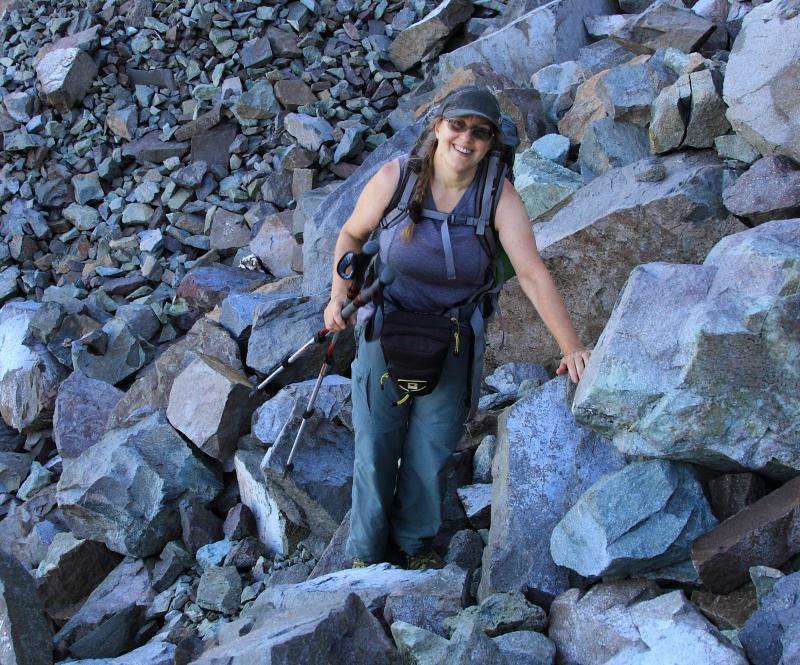 |
